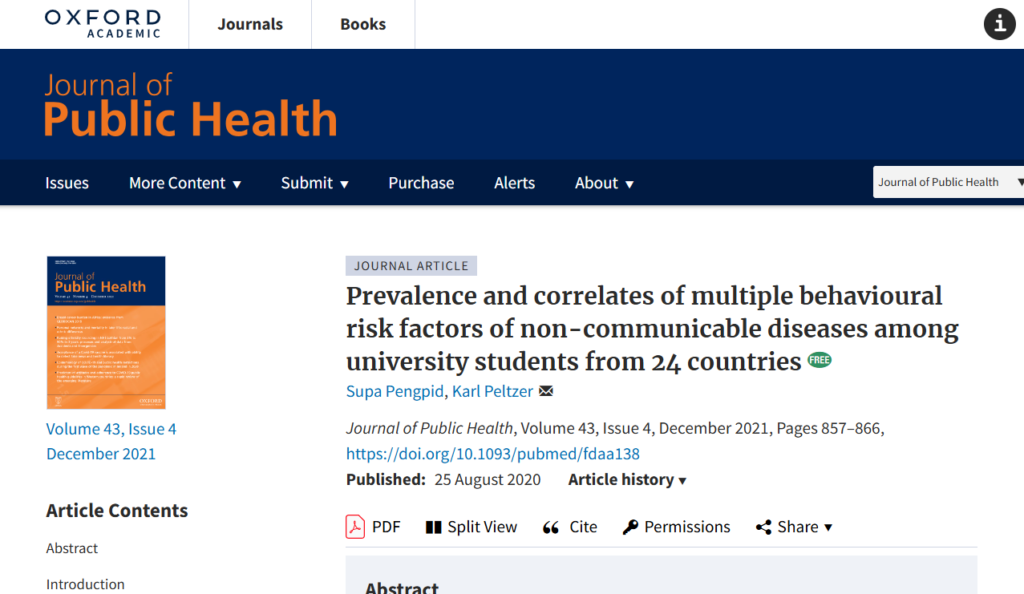Promoting WFPBD in South African Schools and Universities

The shift is evident.
You can see it in meatless Mondays and the boom in plant-based milk.
The world is moving to whole food plant-based (WFPB) diets.
But this trend isn’t just about personal health choices. It can change South Africa’s future.
With a concerning rise in non-communicable diseases (NCDs) like heart disease and diabetes, we need innovative solutions to promote student well-being.
Schools and universities are centres of possibilities for changing diets.

Pixabay/libellule789
This blog post explores how we can promote WFPB diets in schools and universities. WFPB diet is a powerful tool in our fight against NCDs.
We’ll delve into these diets’ benefits for student health and the environment and explore practical strategies for promoting WFPB options in South African schools and universities.
By this approach, we can build a healthier, more sustainable future for South Africa by fostering a generation of plant-powered learners.
Benefits of WFPB Diets for South African Schools and Universities
South African students face a double challenge: staying healthy amidst a growing NCD crisis and navigating a world increasingly focused on environmental sustainability.
Here’s the kicker
Whole food plant-based diets offer a unique solution that addresses both these concerns.
Let’s explore the specific benefits WFPB diets can bring to South African schools and universities:
Boosting Student Health

Reduced Risk of NCDs
WFPB diets are naturally lower in saturated fat and cholesterol and higher in fibre. These are all factors that impact NCDs. l
These properties translate to healthier students, fewer illness-related absences, and a better chance of reaching their full academic potential.
Improved Concentration and Learning
Studies show diets consisting of fruits, vegetables, and whole grains can enhance cognitive function, memory, and focus.
This brain enhancer is crucial for students facing exams and a demanding academic workload.
Weight Management
WFPB diets are naturally lower in calorie density and higher in fibre, promoting satiety and potentially aiding in healthy weight management.
This potency is significant considering the rising prevalence of childhood obesity in South Africa.
Is this not the right time for students at schools or universities to control obesity?
Beyond the Individual: Environmental Benefits
Sustainable Food Systems
Animal agriculture has a significant environmental footprint.
Promoting WFPB diets in schools and universities can contribute to a more sustainable food system by reducing reliance on resource-intensive meat production.
Combating Climate Change
Livestock farming contributes to greenhouse gas emissions.
Climate change has caused floods and devastation in Gauteng, KZN, the Western Cape, and the Eastern Cape in South Africa.
Integrating WFPB options can help reduce the environmental impact of school and university dining halls.
Additional Advantages
Cost-Effectiveness
Plant-based proteins like lentils and beans can be more affordable than animal protein sources. This swap is especially beneficial in low-income areas where schools can provide nutritious meals.
Ethical Considerations
WFPB diets align with growing concerns about animal welfare and factory farming practices. This concern can resonate with students who are increasingly environmentally and ethically conscious.
By embracing WFPB options, South African schools and universities can take a significant step towards fostering a healthier student population, promoting environmental sustainability, and aligning with evolving ethical considerations.
The Current Landscape: Room for Plant-Based Growth
South African schools and universities offer various food options, with cafeterias often serving traditional meals that may be high in meat, processed foods, and refined carbohydrates.
While some institutions might have begun incorporating healthier choices like salads or fruit, a consistent focus on WFPB meals must be more present.
However, there are positive signs of change. Many schools participate in the National School Nutrition Programme (NSNP), which aims to provide nutritious meals to disadvantaged learners.
While the program doesn’t explicitly focus on WFPB options, it emphasizes fresh produce and whole grains.
Additionally, some universities offer vegetarian or vegan meal options, catering to a growing student demand for plant-based choices.
However, a crucial gap exists in education surrounding plant-based nutrition for students.
A Public Affairs Research Institute (PAN South Africa) study found that most South African schools need more qualified nutritionists and need to integrate information on healthy eating habits into the curriculum.
This knowledge gap hinders students’ ability to make informed diet choices, even when healthier options are available.
By acknowledging the existing efforts and highlighting the need for more comprehensive education on WFPB diets, we can pave the way for a more plant-powered future in South African schools and universities.
Strategies for Promotion: Sowing the Seeds of Change
Integrating WFPB options into South African schools and universities requires a multi-pronged approach.
Here are some key strategies to consider:
Cultivating Healthy Habits in Schools
Curriculum Integration
Update school curriculums to include age-appropriate information on WFPB diets, the importance of balanced nutrition, and the connection between food choices and health.
The curriculum can incorporate life sciences, home economics, or environmental studies.
Cooking Up Change
Implement practical cooking classes focused on delicious and nutritious plant-based recipes. This hands-on approach allows students to develop culinary skills and confidence in preparing healthy meals.
Growing Future Leaders
Partner with local farms or organizations to offer school gardening programs.
Students can learn where their food originates from, understand the value of fresh produce, and appreciate the connection between agriculture and healthy eating.
Planting the Seeds of Choice
Offer appealing WFPB options alongside traditional meals in school cafeterias.
This approach allows students to explore plant-based alternatives without feeling restricted.
Focus on creative and flavorful dishes like lentil burgers, veggie stir-fries, or whole-wheat pasta with a vibrant vegetable sauce.
Nurturing Plant-Based Options in Universities
Academic Integration
Integrate plant-based nutrition into relevant courses, such as health sciences, nutrition, or environmental studies.
This integration gives students a deeper understanding of the science behind WFPB diets and their impact on health and the environment.
Is it possible to do more?
Workshops and Seminars
Host workshops and seminars on the benefits of WFPB diets. Invite registered dietitians or nutrition experts to speak on meal planning, healthy recipe creation, and addressing specific dietary needs with a plant-based approach.
Student Power
Partner with student organizations like environmental clubs or vegan societies to promote plant-based initiatives.
This partnership allows students to champion the cause and encourage their peers to explore WFPB options.
Campus Dining Transformation
Increase the availability of delicious and visually appealing WFPB options in campus dining halls.
This variety could involve offering dedicated plant-based stations, featuring “Meatless Monday” promotions, or partnering with student chefs to create innovative plant-based menus.
Implementing these strategies can transform schools and universities into fertile ground for promoting WFPB diets.
This strategy will benefit students’ health and well-being and contribute to a more sustainable and ethical food future for South Africa.
Addressing Challenges: Overcoming Hurdles on the Path to Plant-Based Progress
Promoting WFPB diets in schools and universities is an exciting prospect, but it’s important to acknowledge potential challenges:
Affordability
Plant-based alternatives, like certain meat substitutes, can sometimes be more expensive. However, focusing on budget-friendly options like lentils, beans, whole grains, and seasonal vegetables can create delicious and affordable meals.
Partnerships with local farmers or wholesalers can also help reduce costs.
Cultural Acceptance
South African cuisine often features meat as a central component.
Can schools and universities offer alternatives?
However, many delicious and culturally relevant plant-based dishes exist to explore. Chefs can incorporate traditional flavours and cooking techniques into WFPB options, making them familiar and appealing to students.
Dietary Needs
Schools and universities must ensure WFPB options cater to students with specific dietary restrictions.
Collaboration with registered dietitians can help develop plant-based menus that address individual needs for allergies, intolerances, or religious restrictions.
Building a Sustainable Future
Addressing these challenges requires a collaborative approach.
What can these institutions do?
Schools and universities can work with nutritionists, chefs, local farmers, and student organizations to create a supportive environment for WFPB choices.
Open communication with parents and caregivers is also crucial, ensuring everyone is on board to promote healthy eating habits at home and school.
We can overcome these hurdles by fostering a culture of education, creativity, and inclusivity. In doing so, we can empower South African students to make informed dietary choices.
Conclusion
The future of South Africa rests on the shoulders of its young learners.
By promoting WFPB diets in schools and universities, we invest in students’ academic success and overall health and well-being.
These plant-powered choices can reduce the burden of NCDs, create a more sustainable food system, and align with evolving ethical considerations.
The path forward requires collaboration between educators, policymakers, food service providers, and students themselves.
By implementing the strategies outlined above and addressing potential challenges head-on, we can cultivate a generation of South African students who are well-nourished and ready to make informed choices about their health and the planet. Let’s embrace the power of plant-based diets and create a brighter, healthier future for all South Africans.
